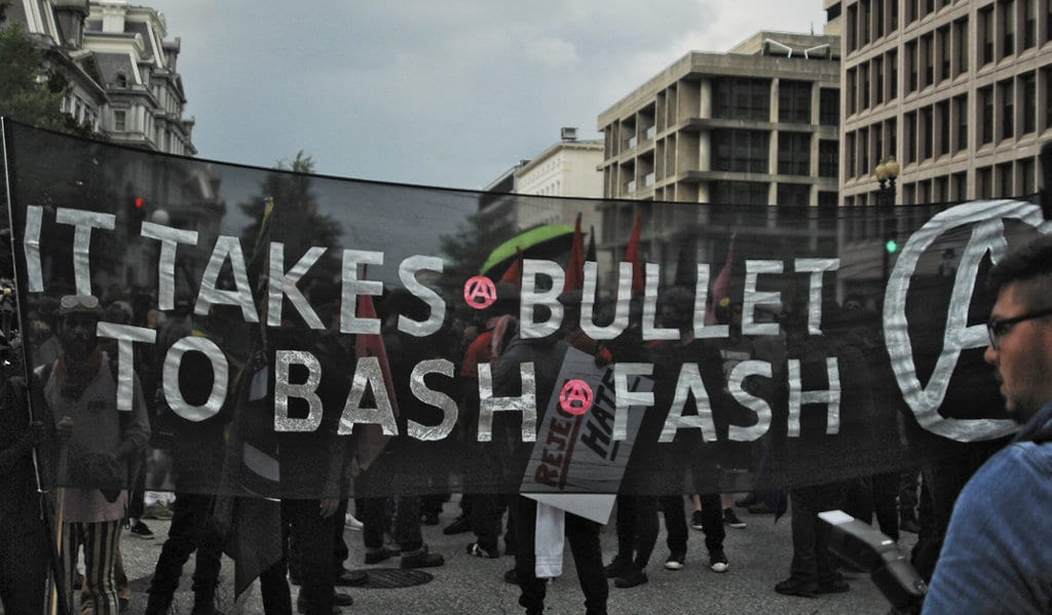Tom Friedman has an idea. Writing in the New York Times about the proper response to the murder of Jamal Kashoggi he argues that the West should aim at reforming Islam in Saudi Arabia. His strategic goal is not regime change but civilization change across the wider Islamic world. (Italics mine)
How should America think about balancing our values and our interests going forward? The best way to answer that, for me, is to go back to the basics. I always knew that M.B.S.’s reform agenda was a long shot to succeed, but I was rooting for its success — while urging the Trump administration to draw redlines around his dark side — for a very specific reason. It had nothing to do with M.B.S. personally. Personally, I don’t care if Saudi Arabia is ruled by M.B.S., S.O.S. or K.F.C.
It had to do with how I defined our most important national interest in Saudi Arabia since 9/11. And it is not oil, it’s not arms sales, it’s not standing up to Iran. It’s Islamic religious reform, which can come only from Saudi Arabia, the home of Islam’s holiest cities, Mecca and Medina. …
And we have to make sure that the social/religious reform process in Saudi Arabia proceeds — whoever is in charge there. Because that is a vital U.S. interest.
Unfortunately Friedman’s plan to reform Saudi Islam maybe as feasible as drilling rock with wet spaghetti. Experience suggests Islam may be far more likely to gain in the West than vice versa. That tendency to lose ground in fact drives the fear that underpins the populist revolt. But it wasn’t always so. This tendency to lose ground may be due more to Western weakness than Muslim strength.
For most of the 20th century radical Islam was in relative decline until it was revived with trillions of petrodollars and the outburst of cultural self loathing and political correctness we see today. As Nervana Mahmoud, explaining why the NYT (Friedman’s publisher) has the embarrassing problem of canceling its guided tours to Saudi Arabia has tweeted the “NYT has made a strategic [decision] long time ago, to embrace and glamorize all form of Islamism hence visiting the Mullahs-controlled land seems desirable. A kind of Neo-Orientalism, in which forcing hijab is exotic.”
If Friedman’s program of Islamic reform is to have any hope of success it must be on the back of Western energy independence and a renewed self confidence. Otherwise Europe’s fate will be contingent on hopes of Saudi reform and the availability of wind and solar power on which the Greens chiefly depend.
A civilization that believes in postmodern nothing, which regards gender and race as fluid, treats religion as superstition and adjudges itself guilty of every historical accusation — besides depopulating itself — is not very attractive. The best way to “reform Islam” is by reviving the counterexample of Western success, returning to standards honorable behavior and demonstrating sanity in public life. Why would Islamic culture want to imitate a civilization that sees itself as horrible? If one imagines for a moment what the Woke West looks like to an external observer one might have a clue. The Chinese have a word for the Western Woke Left: it Baizuo.
Baizuo (/ˈbaɪˌtswɔː/;[1] Chinese: 白左 báizuǒ, literally “white left”) is a derogatory Chinese neologism used to refer to Western leftist liberal elites … implying support of multiculturalism, political correctness and positive discrimination. In more than 400 answers submitted by Zhihu users during 2015 to May 2017, the term is defined as referring to those who are hypocritically “obsessed with political correctness” in order to “satisfy their own feeling of moral superiority” motivated from an “ignorant and arrogant” Western-centric worldview who “pity the rest of the world and think they are saviors”.
The Chinese are laughing at the West. The Russians and perhaps even the Islamists may be mocking at us too. It’s hard to reform anyone when they are rolling on the floor laughing at you. The place to start changing is ourselves. One reason why conservatives are more accepting of the past is ironically because they believe in absolution and redemption. The shortcomings of the past can be overcome and Western civilization is glorious in spite of it.
By contrast the progressives too often regard history as a mother lode of guilt and grievance. There are bricks and stones in it, but all are accursed and bloodstained. Merely to think of it is to be triggered. If Islam is to be reformed it needs an attractor, not a baizuo place turning the lights out on itself.
Follow Wretchard on Twitter
For a list of books most frequently purchased by readers, visit my homepage.
Support the Belmont Club by purchasing from Amazon through the links below.
Books:
Custer’s Trials: A Life on the Frontier of a New America, by T.J. Stiles. Winner of the 2016 Pulitzer Prize in History, this book paints a portrait of Custer that demolishes historical caricature, revealing a volatile, contradictory, intense person — capable yet insecure, intelligent yet bigoted, passionate yet self-destructive, a romantic individualist at odds with the institution of the military (he was court-martialed twice in six years). The key to understanding Custer, Stiles writes, is keeping in mind that he lived on a frontier in time. In the Civil War, the West, and many other areas, Custer helped to create modern America, but could never adapt to it. Stiles casts surprising new light on a near-mythic American figure, a man both widely known and little understood.
Tribe: On Homecoming and Belonging, by Sebastian Junger. We have a strong instinct to belong to small groups defined by clear purpose and understanding or “tribes,” a connection now largely lost. But its pull on us remains and is exemplified by combat veterans who find themselves missing the intimate bonds of platoon life at the end of deployment and the high rates of post-traumatic stress disorder suffered by military veterans today. Combining history, psychology, and anthropology, Junger explores what we can learn from tribal societies about loyalty, belonging, and the eternal human quest for meaning. He explains why we are stronger when we come together, and how that can be achieved even in today’s divided world.
For a list of books most frequently purchased by readers, visit my homepage.
Did you know that you can purchase some of these books and pamphlets by Richard Fernandez and share them with your friends? They will receive a link in their email and it will automatically give them access to a Kindle reader on their smartphone, computer or even as a web-readable document.
The War of the Words, Understanding the crisis of the early 21st century in terms of information corruption in the financial, security and political spheres
Rebranding Christianity, or why the truth shall make you free
The Three Conjectures, reflections on terrorism and the nuclear age
Storming the Castle, why government should get small
No Way In at Amazon Kindle. Fiction. A flight into peril, flashbacks to underground action.
Storm Over the South China Sea, how China is restarting history in the Pacific
Tip Jar or Subscribe or Unsubscribe to the Belmont Club









Join the conversation as a VIP Member